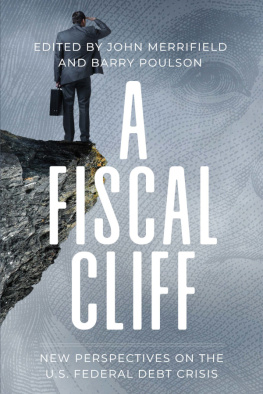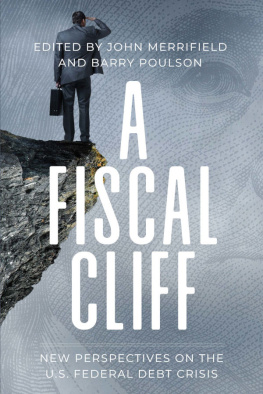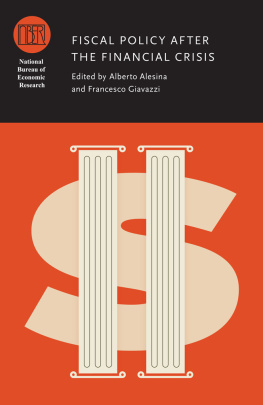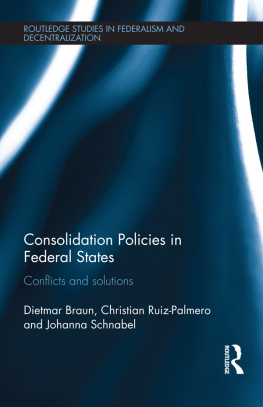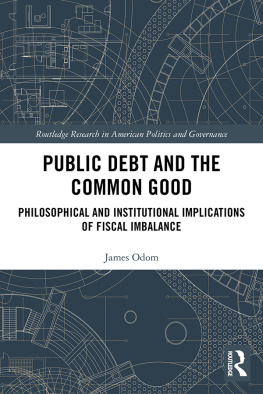As the immediate former comptroller general of the United States and former head of the U.S. Government Accountability Office, I know a fair amount about the deteriorating financial condition of the U.S. government and its unsustainable fiscal outlook. I also have considerable experience in evaluating the financial condition and fiscal sustainability of various states and municipalities due to my experience as a managing director for PricewaterhouseCooperss Public Sector. More important, as a father and grandfather, I have a deep personal concern about the future impact of todays irresponsible fiscal actions and inactions on our children, grandchildren, and future generations of Americans.
The federal governments financial condition and fiscal outlook have deteriorated significantly since the end of fiscal year 2000. During this period, debt subject to the debt ceiling limit rose from about $5.7 trillion, or about 57 percent of gross domestic product (GDP), to more than $22 trillion, or about 110 percent of GDP in 2019. In addition, annual federal deficits are approaching $1 trillion and rising. They are also projected to further increase the debt-to-GDP ratio in the future, absent significant spending and revenue reforms.
The truth is that federal policymakers have lost control of the budget. Today only about 30 percent of the federal budget is controlled by Congress (discretionary spending), down from 97 percent in 1913 when the income tax and the Federal Reserve were established. In addition, the percentage of discretionary spending is set to decrease further due to rising costs associated with Social Security, Medicare, Medicaid, and other mandatory spending programs, along with interest on the federal debt. Shockingly, discretionary spending includes all the items that are expressly enumerated as a role for the federal government in the U.S. Constitution, including national defense and homeland security. And the fastest-growing expense today is interest on the federal debt, for which we get nothing.
Both political parties are to blame for this mess. Too many Republicans focus on cutting taxes today in an attempt to stimulate the economy without understanding the longer-range fiscal implications. Unfortunately, not all tax cuts stimulate the economy, and very few tax cuts pay for themselves. Too many Democrats want to increase the size and role of the federal government without paying for new programs and without understanding the implications on incentives to work, to marry, and to follow the legal immigration process.
Many current and historical fiscal controls have proved to be shortsighted and ineffective. For example, the debt ceiling limit has been totally ineffective in constraining debt burdens. Past attempts to control spending have not withstood the test of time. More fundamentally, Congress regularly fails to pass timely budgets and appropriations bills, resulting in periodic government shutdowns. During these shutdowns, members of Congress continue to get paid, and those civil servants who do not work during a shutdown still get paid retroactively when the shutdown is over. In addition, the current unitary federal budget approach has served to discourage legitimate and much-needed infrastructure projects that can benefit several generations.
While the federal government has its own major financial and fiscal challenges, many states and localities do too. Surprisingly, while all states but one have a balanced budget requirement, a number of states and localities have negative net positions, and many face large and growing structural deficits in the future due primarily to huge unfunded pension and retiree health care obligations. Municipalities can file for bankruptcy to restructure their finances, but state and federal governments cannot do so. And while the federal government has been able to handle much larger debt burdens at relatively low interest rates in recent years, it would be imprudent to think it can to do so in the future without a day of reckoning at some point. Such a day of reckoning would likely come suddenly and with devastating consequences both in the United States and around the world.
This book includes a number of essays from a range of scholars who provide their personal views on the nature and scope of our fiscal challenges, lessons from others, and possible solutions. I hope this book will serve to stimulate some much needed and long overdue discussion regarding how best to put our nations finances in order so that our future can be better than our past. In the final analysis, our executives must lead at all levels of government, and the applicable legislative bodies must act as well if we want to create a better future for all Americans. Doing nothing is not a viable option.
David Walker
U.S. Comptroller General, 19982008
In 2010, the Simpson-Bowles Commission issued a report with recommendations to address the nations debt crisis. The bipartisan commission fell short of the supermajority vote required to submit its recommendations to Congress. Other commissions and think tanks continue to make recommendations, but we are no closer to a solution to the debt crisis than we were 10 years ago. In 2018, a congressional committee was appointed to recommend reforms in the budget process, but that committee could not agree on any recommendations to submit to Congress. Clearly new perspectives are needed if we are to solve the nations debt crisis. The flaw in past recommendations was a focus on the outcomes of fiscal policy; a more fundamental question is whether the rules and institutions governing fiscal decisions are biased toward deficits and debt. The essays in this book approach this question from a public choice perspective. They suggest that unless we reform our fiscal rules and institutions, we are not likely to solve the debt crisis and restore sustainable fiscal policies.
Fortunately, there are precedents for the new fiscal and budget process rules necessary to reduce debt at both the national and the subnational level. But the United States is far behind the learning curve compared to other countries, such as Switzerland, that have successfully enacted these rules. The United States no longer has the fiscal space to respond to a major recession with expansionary fiscal policies as we did a decade ago. The fiscal rules now required to solve the debt crisis will require more stringent fiscal policies than those recommended by the Simpson-Bowles Commission.
Given the polarization and dysfunction in Congress, many question whether our elected officials are capable of enacting such fundamental fiscal reform. There is growing interest in allowing the states and citizens to propose amendments to the Constitution under Article V, such as a balanced budget amendment, to address the crisis. The essays in this book offer a menu of choices in designing new fiscal and budget process rules. They also explore the fiscal policies that would be required by the proposed rules.
The book is dedicated to Milton Friedman, who laid the foundations for rules-based fiscal and monetary policies. The ideas in this book are some of the better ideas lying around to solve the debt crisis, and hopefully elected officials, as well as citizens, will someday find them useful.
Barry Poulson
The editors of this book organized a colloquium of scholars and policymakers as part of the Friedman Project, an ambitious program to restore Americas fiscal constitution. Some participants in the colloquium presented papers in sessions organized at the Western Economic Association and Southern Economic Association meetings in recent years. This book is a collection of papers written by these scholars, focusing on the U.S. debt crisis. The book is the first in a series of publications planned for the Friedman Project.

